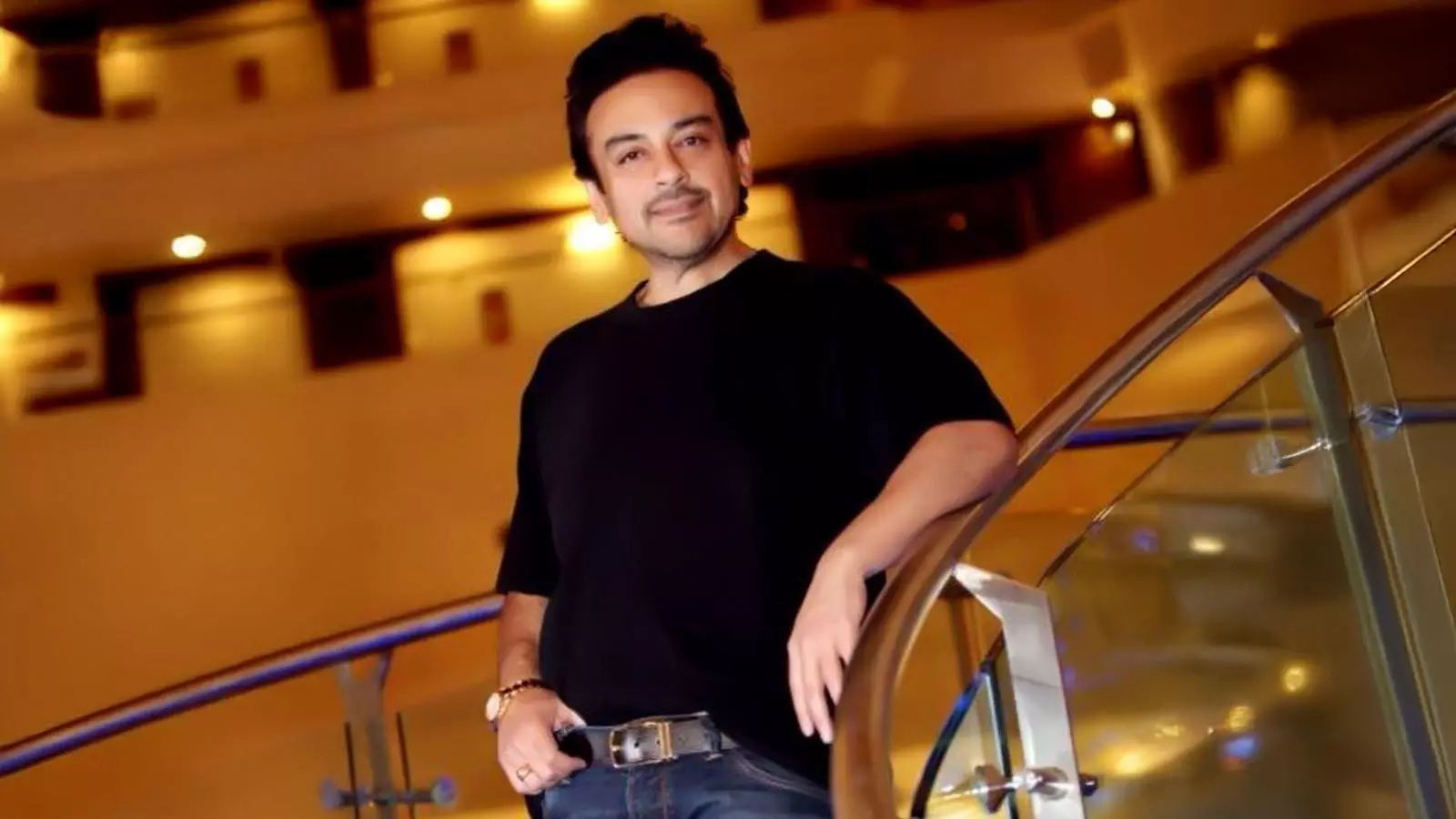
Sinking career, Asha Bhosle's advice: Adnan Sami on why he left Pakistan
The singer who became a rage in the 90s says India resurrected his career, which had slumped in Pakistan

As the tensions between India and Pakistan are shifting from the military to the diplomatic sphere, singer Adnan Sami, a former Pakistani citizen, who was granted Indian citizenship in 2016, shared his experience of shifting to the other side of the Wagah border and making a name for himself in the Indian music industry.
From the guy in a loose red shirt with chubby cheeks who became a music sensation for comic music videos like Lift Karade in 1997 to romantic numbers like Kabhi To Nazar Milao with music icon Asha Bhosle, Sami has proved his mettle in Bollywood.
In a recent interview with India TV, Sami shared his rollercoaster ride from a struggling singer in Pakistan to achieving stardom in India.
Struggles in Pakistan
Sami recalled that he was struggling to gain a foothold in the Pakistani film industry after his songs flopped in 1998 due to a lack of marketing and promotion. He said that after the setback, people in the Pakistani music industry thought that his music career was over and decided to deny any marketing and promotion for his songs, resulting in his album being released and then vanishing without a trace.
“I was very dejected. I was in Canada at that time. I knew they'd done that on purpose," he said as quoted by India TV.
Also Read: Other Pakistanis too want to quit their country: Adnan Sami
Then came Asha Bhosle
However, things took a positive turn for him after he got in touch with Bhosle and narrated his plight to her. Sami told her that people in Pakistan did not want to work with him, and hence, he wanted to record songs with her in London.
However, Bhosle had a different plan for him. Instead of recording in London, she suggested that Sami should come to Mumbai to revive his career in music.
“Mumbai is the capital of Hindi music. Whatever gets popular here would spread out to the rest of the world. So this is the place to come,” Bholse said, as recalled by Sami in the interview.
So he packed his bags and arrived in Mumbai. The rest was history. He fondly recalled how Bhosle and her family supported him during his early days in India. Bhosle lodged him at RD Burman's home, which he described as “like a music temple.”
Also Read: ‘Illiterate idiot’: Adnan Sami hits back at Pak ex-minister’s ‘deflated balloon’ jab
Bollywood success
His career skyrocketed thereafter. "The songs that didn't work in Pakistan, like Kabhi To Nazar Milao, Bheegi Bheegi Raaton Mein, and Lift Karadey, were marketed so well that the rest is history. The way people embraced me and loved me, I could've never imagined it,” said Sami.
Not only did he express his appreciation for the Indian audience’s respect for music, but he also lamented how eminent Pakistani artists like Nusrat Fateh Ali Khan, Mehdi Hassan, and Reshma faced tough times.
Musharraf's letter
Sami also spoke about the famous letter that the then-Pakistani president Pervez Musharraf sent to his father in 2005. In the letter, Musharraf criticised Sami for allegedly abandoning Pakistan.
Sami clarified in the recent interview that there was no basis to the accusations, as he was a Pakistani citizen at that time.
“I don't know where he got the wrong information from. It's obvious that it's gone from the bottom to the top. That's why everyone just disowned me," he said.
As for his decision to shift to India, Sami said money was not the reason behind it, adding that, on the contrary, he had to start everything from scratch after shifting from Pakistan.
"I was facing a lot of problems then as a Pakistani citizen, especially in a public profession. Everyone knows all your moves. I had even reached out to Musharraf for help,” he said.
Sami was granted Indian citizenship in 2016, a year after his application. He had received Padma Shri, India's fourth-highest civilian honour.

